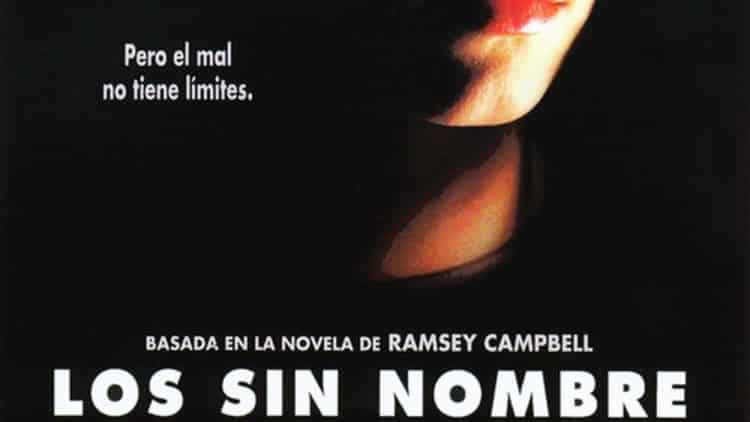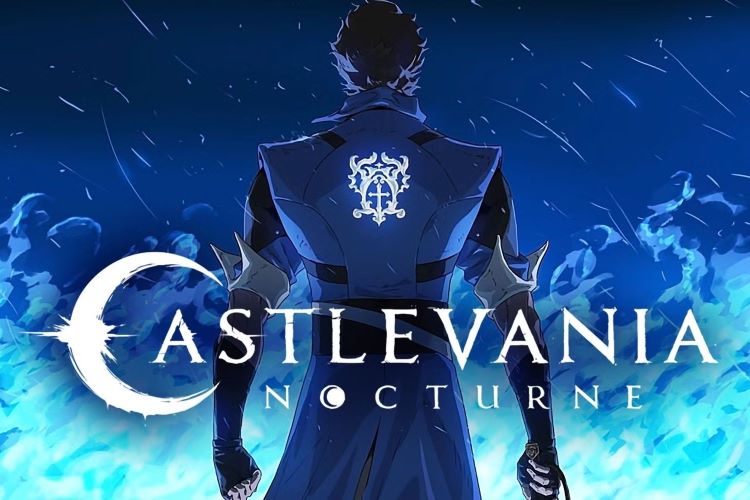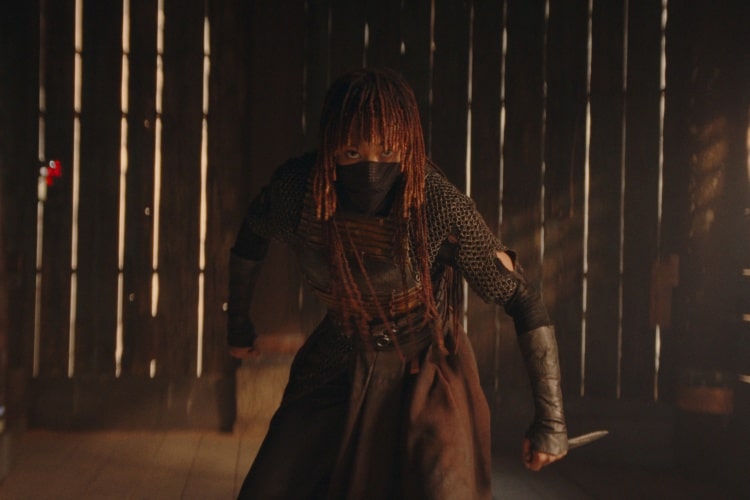One Part Rosemary’s Baby, One Part Seven, THE NAMELESS does NOT satisfy
Main Cast: Emma Vilarasau and Karra Elejalde
Director: Jaume Balaguero
Going into the 1999 Spanish horror movie The Nameless, there were two things going for it that had me won over from the start. One was the fact it’s adapted from a Ramsey Campbell novel of the same name. That right there should be all you need. Campbell is an amazing writer of some top notch horror. Second was the opening scene depicting the discovery of a missing 6-year-old girl, Angela, and the thought of her parents having to go identify her body after its been tortured and dipped in acid. As the father of a daughter I love more than anything, the very idea of this breaks my heart and sets me up for one very hard to watch movie to follow.
So right away, I know this movie’s got two points in the plus column already. Then I found the one very big thing in the negative column that sort of ruined the movie for me: the rest of the movie.
Five years after Angela’s death, her mother Claudia (Emma Vilarasau, Lock Up) is working as an editor and having a hard time getting her head back on track. She’s thrown herself into her work and at night sleeps with the aid of pills. She and Angela’s father split up shortly after Angela’s death, and Claudia is going through life on autopilot. That is until one day when she gets a phone call from a voice claiming to belong to Angela. The girl insists she is Claudia’s missing daughter, alive and well, but being held captive. She gives Claudia clues as to her whereabouts and quickly hangs up before “they” find her.
Claudia goes to the abandoned seaside clinic Angela had directed her to and, although she doesn’t find her daughter, she does find clues that Angela may have been there recently. Clues enough, at least, to interest the retired cop, Massera (Karra Elejalde, Timecrimes), who had been handling the case 5 years earlier, to take up the search with her.
When a mysterious videotape leads tabloid journalist Quiroga (Tristan Ulloa, Open Your Eyes) to the duo, the team begins to uncover more about the mystery of Angela’s disappearance than any of them could have dreamed.
Devil-worshipping cults, concentration camp survivors and a plan to create the ultimate evil and you’ve got yourself one very long (100 minutes) movie paced so slowly you’ll think you’re watching a Paul Thomas Anderson flick. And the fact it’s a Spanish movie with English overdubs doesn’t help.
Adapted and directed by Jaume Balaguero ([Rec] 1, 2 and 4), I can’t tell if The Nameless is a really long movie they had to condense down to 100 minutes or if it’s a really short one they had to stretch. Because it feels like there are enough details about the plot and the cult that this could have been a much longer, more involved movie, but the version I saw had so much dead space in it, so many silent, inexplicable scenes that didn’t seem to go anywhere at all, that it felt like Balaguero was padding it to make it longer. For example the journalist, Quiroga. I haven’t read the original Campbell novel, so I don’t know what part that character played in the original story, but other than acting as a catalyst for Claudia and Messara to get them on the right path, I didn’t see any point in keeping him around for the rest of the movie. He has no effect whatsoever on the climax or outcome, and his very presence at the end of the movie makes no sense whatsoever. So either his character was expanded to fill space, or there was a big chunk of his story missing from the finished movie.
And unfortunately, the entire thing felt like that for me. We wasted a good 10 minutes following Claudia’s ex-boyfriend Toni around, and for WHAT? So we could see how he wound up murdered in her apartment? Cut straight to that shot, we’ll figure out the rest on our own later, we’re a smart audience. Well, most of us.
The ending also felt like it was missing a few minutes of footage that could have really helped the story wrap up in a more satisfactory way. The ending we get is okay, I guess, albeit one of the most depressing endings I’ve ever seen in any movie ever in the history of time, and it wasn’t exactly unexpected, but it just felt like there should have been more to it than that.
It’s hard to tell if the actors, Vilarasau and Elejalde, were any good as the leads because while I could see everything they did, none of the vocal performances were theirs. For all I know, they gave very stiff and emotionless line readings, which were only punched up by the dubbers, whoever they were. They LOOKED like they were good in their roles, at least. Elejalde was a bit of a problem for me, though, because he felt totally interchangeable with any other foreign middle aged man playing a cop in a movie. He could have been the cop from Lucy for all I know. The character type is nothing more than a cardboard cutout used in place of every other character of the same type in every other movie that takes place in a foreign country. Maybe that explains why I was so bored with his character, because I’ve seen the same archetype in so many other movies, and they were all totally forgettable.
I think there are the bones of a really good movie here. If the Campbell book from which it came is any indication, I have to think it could be a REALLY good movie, if done right. I’m just not sure this is the best version to represent the story from the book. Balaguero was TRYING, I could tell that much. And considering what he would go on to do later with the [REC] series, it’s clear he’s got some solid horror chops. But this particular movie just didn’t do it for me. Too long, too slow, maybe it was just too foreign. Whatever it was, there was something lost in the translation from book to movie to English I was definitely missing.
I say skip this one and just read the novel. Campbell is such a brilliant wordsmith, even his lesser scenes are going to be more beautiful and interesting than anything in this movie, and they’ll make a whole lot more sense in the end.

C. Dennis Moore is the author of over 60 published short stories and novellas in the speculative fiction genre. Most recent appearances are in the Dark Highlands 2, What Fears Become, Dead Bait 3 and Dark Highways anthologies. His novels are Revelations, and the Angel Hill stories, The Man in the Window, The Third Floor, and The Flip.







Leave a Reply